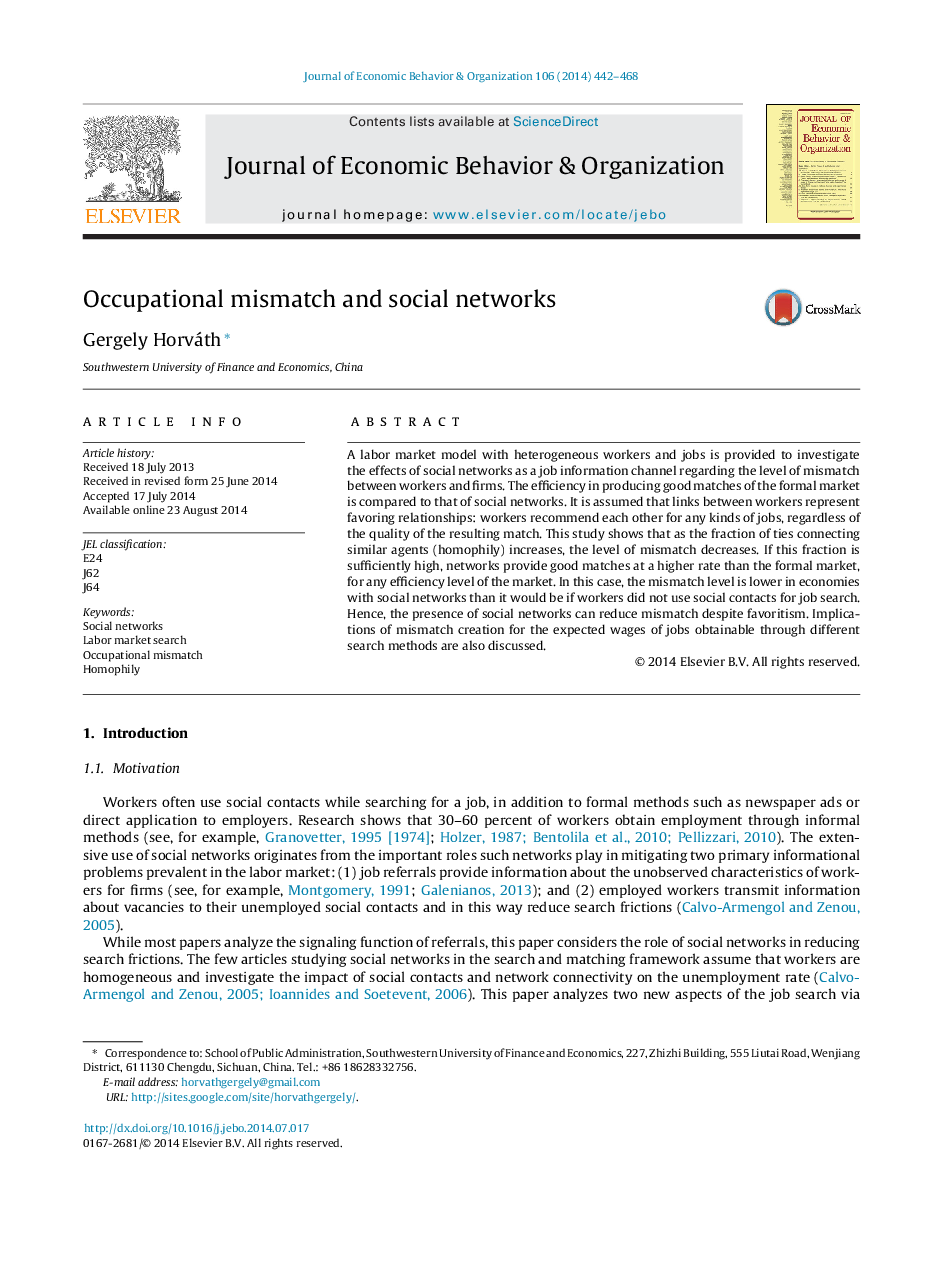| Article ID | Journal | Published Year | Pages | File Type |
|---|---|---|---|---|
| 7243520 | Journal of Economic Behavior & Organization | 2014 | 27 Pages |
Abstract
A labor market model with heterogeneous workers and jobs is provided to investigate the effects of social networks as a job information channel regarding the level of mismatch between workers and firms. The efficiency in producing good matches of the formal market is compared to that of social networks. It is assumed that links between workers represent favoring relationships: workers recommend each other for any kinds of jobs, regardless of the quality of the resulting match. This study shows that as the fraction of ties connecting similar agents (homophily) increases, the level of mismatch decreases. If this fraction is sufficiently high, networks provide good matches at a higher rate than the formal market, for any efficiency level of the market. In this case, the mismatch level is lower in economies with social networks than it would be if workers did not use social contacts for job search. Hence, the presence of social networks can reduce mismatch despite favoritism. Implications of mismatch creation for the expected wages of jobs obtainable through different search methods are also discussed.
Related Topics
Social Sciences and Humanities
Economics, Econometrics and Finance
Economics and Econometrics
Authors
Gergely Horváth,
